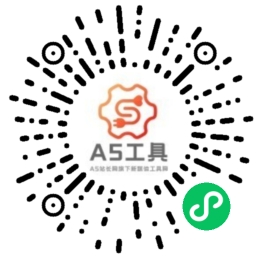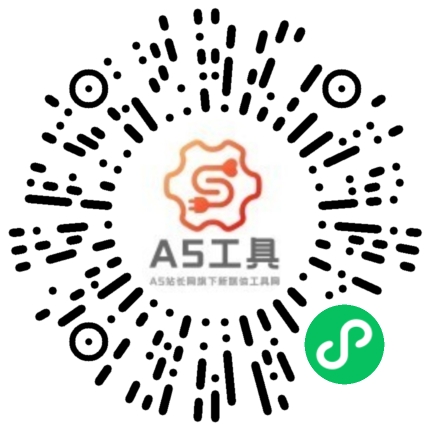AI双刃剑:福祸相依,未来之路如何平衡?
2024-12-11 15:22
**The Dual Edges of AI: A Blade That Cuts Both Ways**
In the epoch where technology races ahead at an unprecedented pace, Artificial Intelligence (AI) stands as a towering figure, casting its shadow over every facet of our lives. But is this digital deity a blessing or a curse? As we navigate through this labyrinth of innovation, let us delve deeper into the intricate tapestry of AI's benefits and drawbacks, inviting you to ponder: How do we harness its power without succumbing to its pitfalls?
On one gleaming side, AI is a beacon of efficiency and progress. According to a study by McKinsey & Company, AI-driven automation could increase global GDP by up to 1.4% by 2030, equivalent to an additional $13 trillion in economic output. Imagine a world where diseases are predicted and treated before they strike, thanks to AI's prowess in data analysis. Or consider the agriculture sector, where precision farming powered by AI optimizes crop yields and conserves precious resources. These aren't distant dreams but burgeoning realities, showcasing AI's potential to uplift humanity.
Yet, beneath this shimmering surface lies a darker undercurrent. The fear of job displacement looms large, as AI systems increasingly automate tasks traditionally performed by humans. A report by the World Economic Forum predicts that by 2025, automation will displace 85 million jobs globally. This raises a pertinent question: In our quest for efficiency, are we sacrificing the livelihoods of millions? Moreover, the ethical implications of AI are fraught with complexity. Bias in AI algorithms, a result of skewed training data, can perpetuate social injustices, amplifying disparities rather than bridging them. As we delegate decision-making to machines, do we risk losing our moral compass?
The debate intensifies when we consider privacy concerns. AI-driven surveillance, while enhancing security, infringes upon personal liberties. Cases of facial recognition technology misused for mass monitoring highlight a slippery slope towards a dystopian future where privacy is a luxury for the few. As we integrate AI into our daily lives, must we surrender our right to anonymity and freedom from unnecessary scrutiny?
Amidst these dual edges, the crux lies in our approach. Instead of viewing AI as an either/or proposition, we must strive for a balanced integration. This means investing in workforce reskilling programs to mitigate the impact of job displacement and fostering ethical AI practices through stringent regulations and diverse, inclusive teams developing these technologies. It also entails enhancing transparency and accountability in AI systems, ensuring that they serve as tools for empowerment rather than oppression.
As we stand on the precipice of an AI-driven future, let us not be blind to its potential nor deaf to its perils. The journey ahead is fraught with challenges, but with mindfulness and foresight, we can harness AI's power to carve a path towards a brighter, more equitable world. Will we rise to this occasion, steering AI's blade to cut through obstacles while safeguarding the fabric of our society? The answer lies in our collective hands.
In the epoch where technology races ahead at an unprecedented pace, Artificial Intelligence (AI) stands as a towering figure, casting its shadow over every facet of our lives. But is this digital deity a blessing or a curse? As we navigate through this labyrinth of innovation, let us delve deeper into the intricate tapestry of AI's benefits and drawbacks, inviting you to ponder: How do we harness its power without succumbing to its pitfalls?
On one gleaming side, AI is a beacon of efficiency and progress. According to a study by McKinsey & Company, AI-driven automation could increase global GDP by up to 1.4% by 2030, equivalent to an additional $13 trillion in economic output. Imagine a world where diseases are predicted and treated before they strike, thanks to AI's prowess in data analysis. Or consider the agriculture sector, where precision farming powered by AI optimizes crop yields and conserves precious resources. These aren't distant dreams but burgeoning realities, showcasing AI's potential to uplift humanity.
Yet, beneath this shimmering surface lies a darker undercurrent. The fear of job displacement looms large, as AI systems increasingly automate tasks traditionally performed by humans. A report by the World Economic Forum predicts that by 2025, automation will displace 85 million jobs globally. This raises a pertinent question: In our quest for efficiency, are we sacrificing the livelihoods of millions? Moreover, the ethical implications of AI are fraught with complexity. Bias in AI algorithms, a result of skewed training data, can perpetuate social injustices, amplifying disparities rather than bridging them. As we delegate decision-making to machines, do we risk losing our moral compass?
The debate intensifies when we consider privacy concerns. AI-driven surveillance, while enhancing security, infringes upon personal liberties. Cases of facial recognition technology misused for mass monitoring highlight a slippery slope towards a dystopian future where privacy is a luxury for the few. As we integrate AI into our daily lives, must we surrender our right to anonymity and freedom from unnecessary scrutiny?
Amidst these dual edges, the crux lies in our approach. Instead of viewing AI as an either/or proposition, we must strive for a balanced integration. This means investing in workforce reskilling programs to mitigate the impact of job displacement and fostering ethical AI practices through stringent regulations and diverse, inclusive teams developing these technologies. It also entails enhancing transparency and accountability in AI systems, ensuring that they serve as tools for empowerment rather than oppression.
As we stand on the precipice of an AI-driven future, let us not be blind to its potential nor deaf to its perils. The journey ahead is fraught with challenges, but with mindfulness and foresight, we can harness AI's power to carve a path towards a brighter, more equitable world. Will we rise to this occasion, steering AI's blade to cut through obstacles while safeguarding the fabric of our society? The answer lies in our collective hands.
这篇关于《AI双刃剑:福祸相依,未来之路如何平衡?》的文章就介绍到这了,更多新媒体运营相关内容请浏览A5工具以前的文章或继续浏览下面的相关文章,望大家以后多多支持A5工具 - 全媒体工具网!





